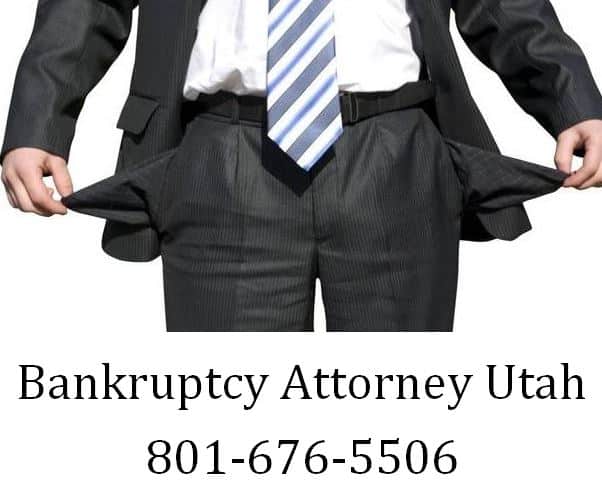Although we’ve mentioned it time and again on the forum, it bears repeating: filing for bankruptcy is not a decision to be entered into lightly. In fact, it is important to get good information and carefully weigh your options.
Is Bankruptcy Always a Last Resort?
Having said that, delaying too long can cause unnecessary financial strain and serve to compound existing problems. Is bankruptcy always the last option? Some of the common things consumers do before they consider bankruptcy include: • Cash out their retirement funds to pay debt • Pay a debt settlement company to settle their debts • Settle their debt by dealing directly with the creditor or its attorney In some cases, these bankruptcy alternatives can be just what the doctor ordered, however in others they can put you in deeper trouble without meaningful debt relief.
Depleting Your Retirement To Pay Debt
Selling assets to avoid bankruptcy is often a bad idea and a retirement account is no exception. As Bankruptcy Lawyers in Utah like to point out to everyone who meets with us about bankruptcy…
The fact is that the lingering recession is causing a lot of people to file for bankruptcy who never thought they would. While the recession is is undoubtedly a sad turn of events, I am also seeing an even more disturbing trend. Namely, a lot of them are selling all of their property in an effort to stay current with their bills and avoid filing for bankruptcy. By the time they come to me, they have already gone through everything they own. While these efforts are always well-intentioned, they are catastrophic for their finances. In a lot of cases, people are selling assets that they would otherwise be able to keep if they would have thought about filing for bankruptcy a little sooner.
Perhaps nowhere is this point better illustrated than in the context of a retirement account. ERISA qualified 401(k) accounts and many IRAs are completely exempt in bankruptcy. This means you can file bankruptcy, shed your debts and keep your retirement. As Jacob describes, it is always difficult to see someone liquidate their retirement only to be forced into bankruptcy a few months later. For more information, see: Retirement Savings and Bankruptcy.
Debt Settlement vs. Bankruptcy
Debt settlement companies promise the world but rarely deliver. They often charge fees that far exceed the cost of bankruptcy and actually require their clients to go deep in default in order to settle their debts. Here is how the process works: you, the debtor, stop paying on your credit card accounts and other bills and instead save some of the money. When you’re deep enough in default, the creditor has written off the debt and may agree to accept a reduced payment in satisfaction of the balance. You fork over the money you’ve saved plus a hefty fee and you’re out of debt. That’s how it works sometimes, but definitely not all the time. While you’re waiting on the debt settlement company, you’re creditors are definitely not waiting on you. They’re reporting delinquencies on your credit. calling and sometimes actually suing to collect. By the time you’ve reached your debt settlement goals, your wages may already be in the process of being garnished or a judgment might have been entered against you. Sure, filing for bankruptcy can help with most of these problems, but why wait?
Negotiating With Creditors instead of Bankruptcy
While the debt settlement waiting game is expensive and often ineffective, sometimes negotiating directly with creditors can be a nice alternative to filing for bankruptcy if you already have the cash to make a deal. If you stand to have more assets liquidated in bankruptcy than you’d save in debt, dealing with the creditor through an attorney can often result in signifcant savings and a permanent solution to the problem. In these cases, bankruptcy may very well be your best option. For example, let’s say you owe $50,000 on a delinquent business loan but have $150,000 in cash and stocks. Filing for bankruptcy would result in the trustee liquidating your stock portfolio to pay your creditors, in fact, they’d likely get paid in full. In these instances, it makes much more sense to negotiate a reduced payment directly with the creditor.
Fresh Start For You
Although the costs are not insignificant, the purpose of bankruptcy is to provide those struggling with debt a fresh start. Sometimes, the bankruptcy card is only to be played as a last resort, however, in some cases it offers the most thorough relief on the best timeline. Each situation is different, if you’re contemplating bankruptcy, be sure to meet with an experienced attorney.
Free Consultation with a Bankruptcy Lawyer
If you have a bankruptcy question, or need to file a bankruptcy case, call Ascent Law now at (801) 676-5506. Attorneys in our office have filed over a thousand cases. We can help you now. Come in or call in for your free initial consultation.
8833 S. Redwood Road, Suite C
West Jordan, Utah
84088 United States
Telephone: (801) 676-5506
Recent Posts
What is a Chapter 7 Bankruptcy?
How to be a Safe Motorcycle Rider


